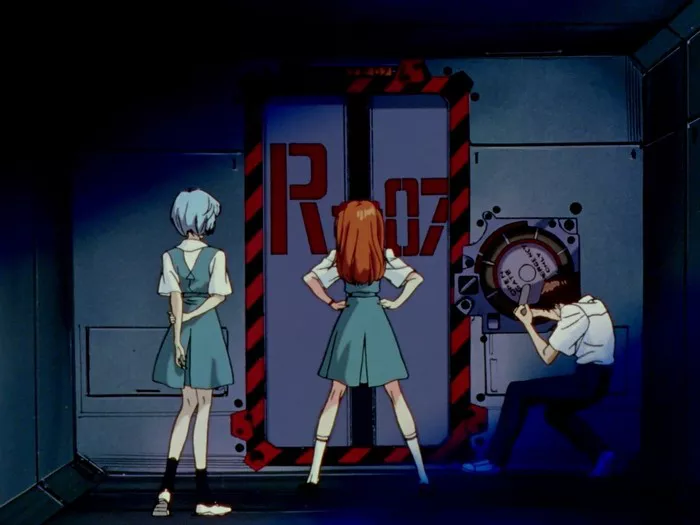Embarking on a journey into the world of Neon Genesis Evangelion can be both thrilling and daunting. As one of the most influential and critically acclaimed anime series of all time, Neon Genesis Evangelion has captured the imaginations of fans worldwide with its complex characters, thought-provoking themes, and stunning visuals. However, with multiple iterations, films, and spin-offs to choose from, newcomers may find themselves unsure of where to begin. In this comprehensive guide, we’ll navigate the Neon Genesis Evangelion universe, providing insights, recommendations, and tips to help you embark on your journey into this iconic anime series.
Introduction to Neon Genesis Evangelion
A Landmark in Anime History
Neon Genesis Evangelion, often abbreviated as Evangelion or NGE, first premiered in 1995 and quickly became a cultural phenomenon within the anime community. Created by Hideaki Anno and produced by Gainax, the series defied conventions with its bold storytelling, psychological depth, and philosophical themes, setting new standards for the mecha genre and influencing countless subsequent works of anime and science fiction.
Exploring the World of Evangelion
Set in a post-apocalyptic future where humanity battles enigmatic beings known as Angels, Neon Genesis Evangelion follows the journey of Shinji Ikari, a reluctant teenage pilot recruited to pilot giant bio-mechanical robots called Evangelions. As Shinji grapples with his own insecurities, traumas, and existential crises, he becomes embroiled in a conflict that will determine the fate of humanity and the future of the world.
Choosing Your Starting Point
Original TV Series: Neon Genesis Evangelion (1995-1996)
For many fans, the original Neon Genesis Evangelion TV series is the quintessential starting point. Consisting of 26 episodes, the series introduces viewers to the iconic characters, complex narrative, and philosophical themes that define the Evangelion universe. Watching the original series provides a comprehensive foundation for understanding the story and its subsequent iterations.
Rebuild of Evangelion Film Series (2007-2021)
Alternatively, newcomers may choose to begin their journey with the Rebuild of Evangelion film series, a tetralogy of movies that reimagines and expands upon the original TV series. Comprising “Evangelion: 1.0 You Are (Not) Alone,” “Evangelion: 2.0 You Can (Not) Advance,” “Evangelion: 3.0 You Can (Not) Redo,” and “Evangelion: 3.0+1.0 Thrice Upon a Time,” the Rebuild films offer a visually stunning and streamlined retelling of the Evangelion story, making them accessible to new audiences.
Manga Adaptations and Spin-Offs
In addition to the original TV series and Rebuild films, fans may explore various manga adaptations, spin-offs, and supplementary materials set within the Evangelion universe. While these works offer alternative perspectives and interpretations of the story, they are best approached after familiarizing oneself with the core narrative of the original series or Rebuild films.
Understanding the Viewing Experience
Themes and Symbolism
Neon Genesis Evangelion is renowned for its complex themes, philosophical underpinnings, and rich symbolism. As you watch the series or films, pay close attention to recurring motifs, visual imagery, and character dynamics, as they often contain deeper layers of meaning and significance that enhance the viewing experience.
Character Development
Central to the appeal of Neon Genesis Evangelion is its nuanced portrayal of characters grappling with personal demons, emotional trauma, and existential angst. Take the time to empathize with characters like Shinji Ikari, Rei Ayanami, and Asuka Langley Soryu, as they undergo profound transformations and confront the complexities of human nature.
Narrative Complexity
Neon Genesis Evangelion is renowned for its intricate narrative structure, nonlinear storytelling, and ambiguous plot elements. As you progress through the series or films, be prepared for moments of confusion, ambiguity, and philosophical introspection. Embrace the complexity of the narrative and allow yourself to engage with the story on multiple levels.
Navigating the Evangelion Franchise
Exploring Expanded Universe Material
Beyond the original TV series and Rebuild films, the Evangelion franchise encompasses a wide range of expanded universe material, including video games, audio dramas, light novels, and merchandise. While these works offer additional insights into the Evangelion universe, they are best explored after immersing oneself in the core narrative of the series or films.
Engaging with Fan Community
Joining online forums, social media groups, and fan communities dedicated to Neon Genesis Evangelion can enhance your viewing experience by providing opportunities to discuss theories, share insights, and connect with fellow fans. Engage with the vibrant Evangelion fan community to deepen your appreciation for the series and forge lasting connections with like-minded enthusiasts.
Attending Events and Conventions
For fans seeking immersive experiences and opportunities to celebrate their love for Neon Genesis Evangelion, attending anime conventions, film screenings, and fan events can be a rewarding endeavor. Keep an eye out for Evangelion-themed panels, screenings, and merchandise booths at conventions in your area, and immerse yourself in the vibrant world of Evangelion fandom.
Conclusion: Embracing the Evangelion Experience
Neon Genesis Evangelion is more than just an anime series—it’s a cultural phenomenon that has captivated audiences for decades with its compelling characters, thought-provoking themes, and stunning visuals. Whether you choose to begin your journey with the original TV series, Rebuild films, or supplementary materials, the world of Evangelion offers a wealth of experiences waiting to be explored. Embrace the complexity, ambiguity, and philosophical depth of the Evangelion universe, and allow yourself to be swept away by its timeless allure. As you embark on your journey into the world of Neon Genesis Evangelion, may you find enlightenment, inspiration, and a newfound appreciation for the power of storytelling in all its forms.

